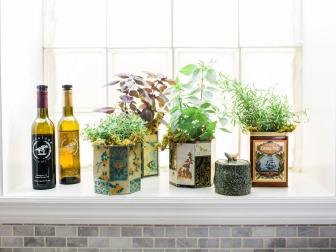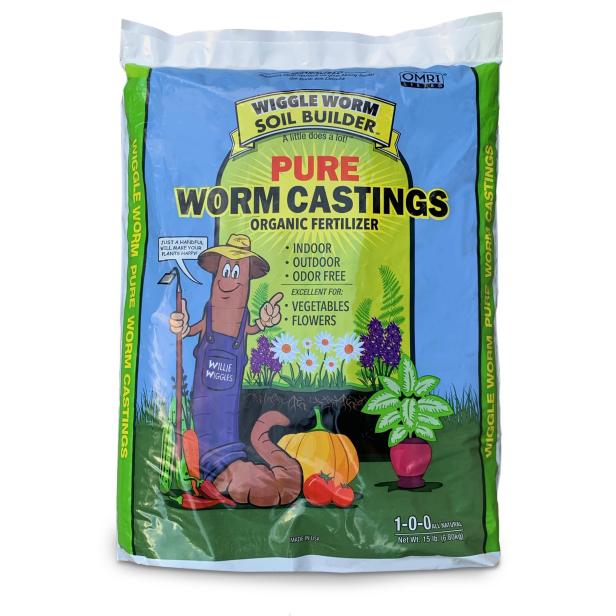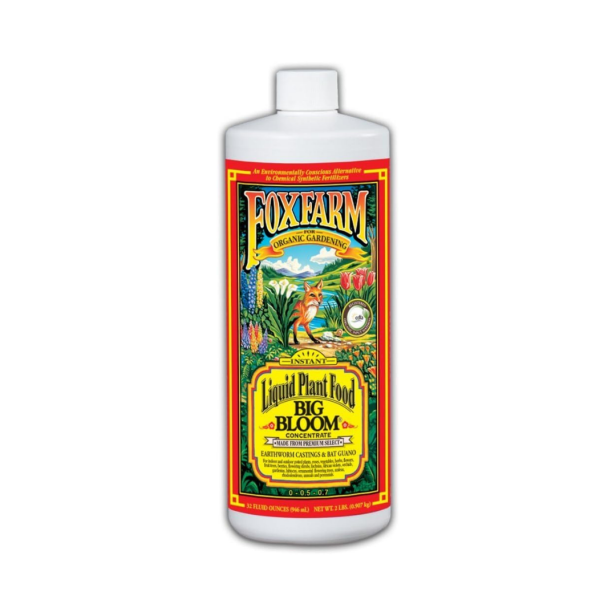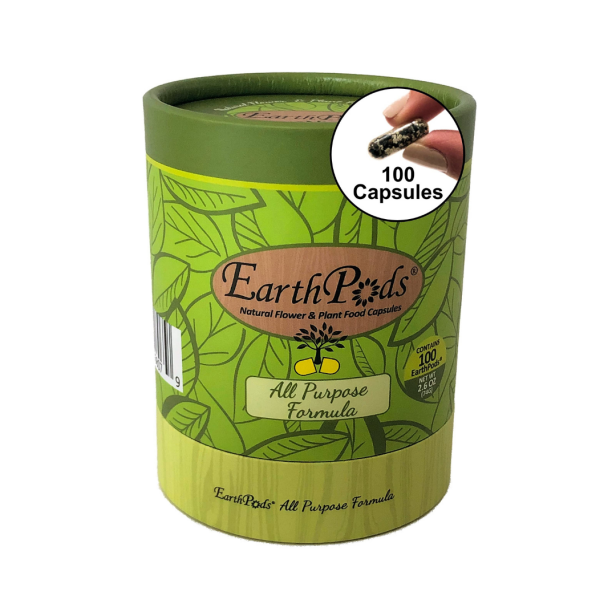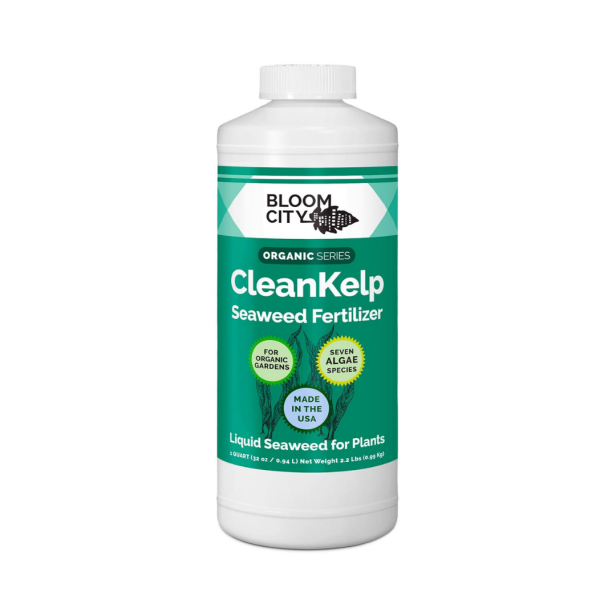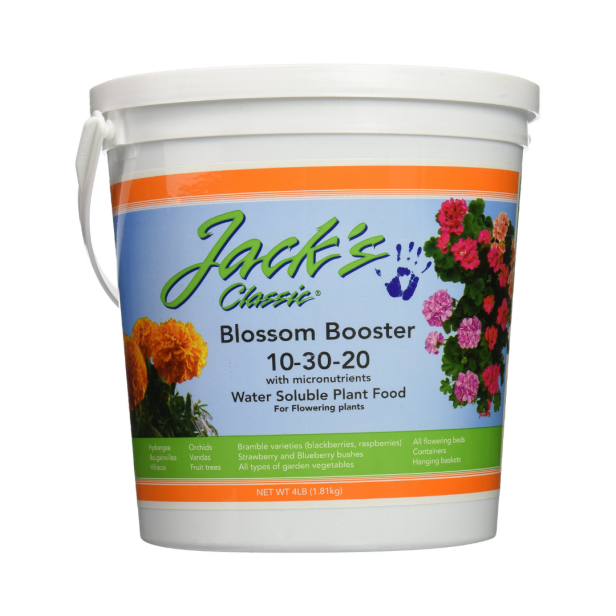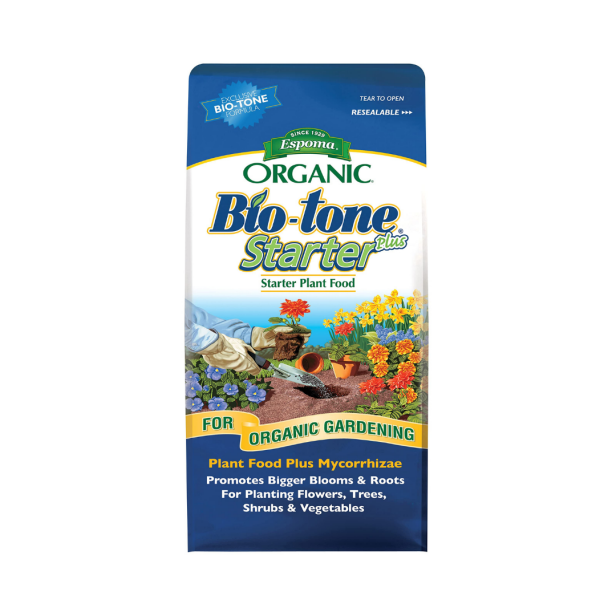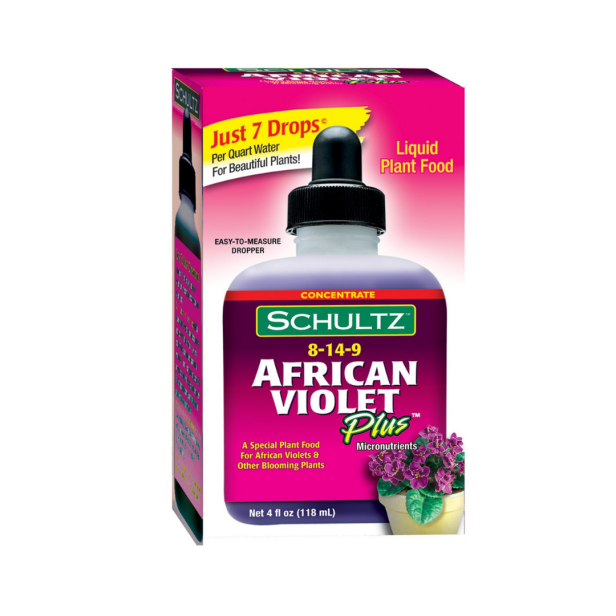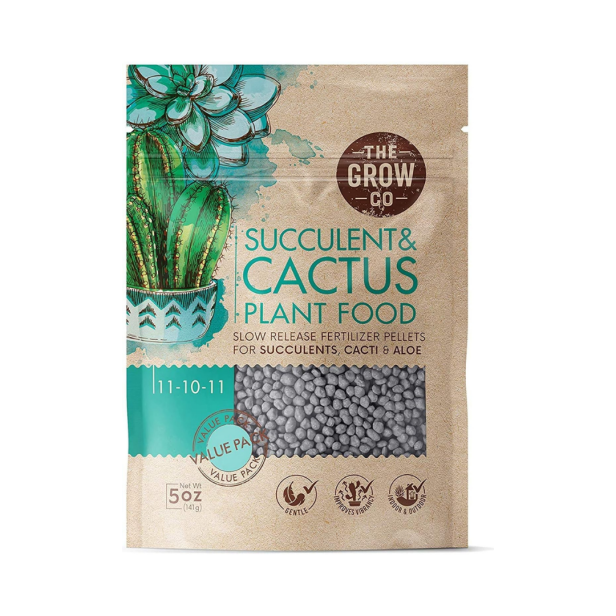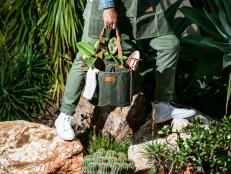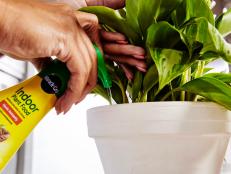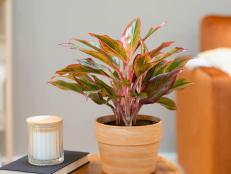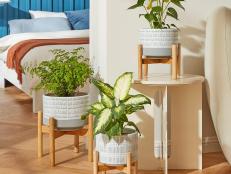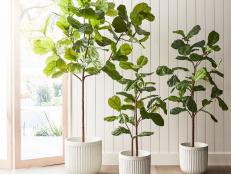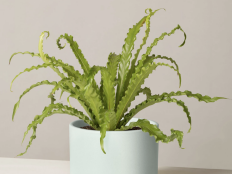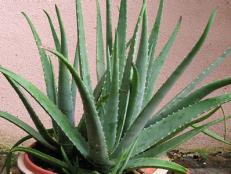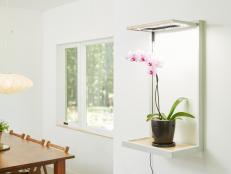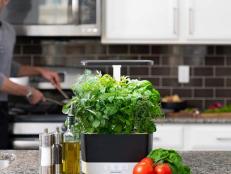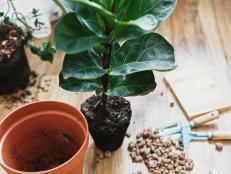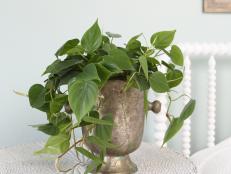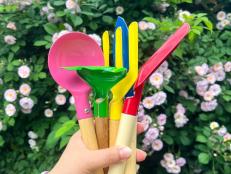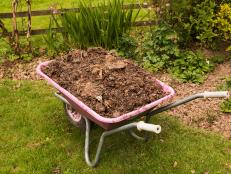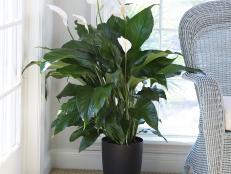The 10 Best Fertilizers for Indoor Plants, According to a Master Gardener
Keep houseplants healthy and strong with the right fertilizer.

Our Top Houseplant Fertilizer Picks
- Best Overall: Dr. Earth Premium Gold Organic All-Purpose Fertilizer
- Best Value: Miracle-Gro Indoor Plant Food
- Best Organic: Wiggle Worm Organic Worm Castings Fertilizer
- Best Liquid: Fox Farm Big Bloom Liquid Plant Food Concentrate
- Best Capsule: EarthPods Organic Indoor Plant Food Capsules
- Best Seaweed: Bloom City Organic Liquid Seaweed and Kelp Fertilizer
- Best for Blooms: Jack's Classic Blossom Booster Fertilizer
- Best for Starter Plants: Espoma Organic Bio-Tone Starter Plus
- Best for African Violets: Schultz African Violet Plus Plant Food
- Best for Cacti & Succulents: The Grow Co Succulent & Cactus Plant Food
Indoor plants can be tricky. While some tend to grow and flourish with little care, others seem to struggle no matter what we do or try. Yet, there are ways to give our indoor plants an advantage. To start, use a good quality soil mix, ensure you have proper drainage in your pots, and know the proper light and water needs for the plants you have. These might seem simple, but they really can put you well on your way to healthy and successful indoor plants.
Then there is one other thing you can do to give yourself an advantage. Find a good fertilizer — or two or three, depending on the types of plants you have. By investing in good fertilizers, you're looking out for the overall health of your plants and giving them the important nutrients they need to thrive. Now it's important to follow the listed recommendations around fertilization because it can be very easy to overdo it. But don't overthink it. All these fertilizers have instructions, and when you learn to follow the guidelines, you'll likely see incredible results. Here are some of the best indoor fertilizers to check out.
Best Overall Indoor Plant Fertilizer
Elevate your gardening with Dr. Earth fertilizer, a brand synonymous with quality and trust among gardeners. This certified organic, all-purpose fertilizer uses pellets infused with beneficial microbes and mycorrhizae. It contains a balanced 4-4-4 formulation for fast, long-lasting results, and for many gardeners, it's the perfect choice for multiple planting needs. While Dr. Earth offers a range of specialized fertilizers for specific gardening needs, this versatile product stands out as an excellent all-around solution for those seeking organic, reliable plant nutrition.
Best Value Indoor Plant Fertilizer
You can find multiple Miracle-Gro fertilizer options, including this easy-to-use formula. Designed for all indoor houseplants, including edibles, this nutrient-rich food feeds plants instantly with just a weekly application. You can apply the formula directly to the soil or mix it with water. Looking for similar inexpensive options for your orchids, succulents, tropical plants, blooming plants or other houseplants? Miracle-Gro has options for those as well.
Best Organic Indoor Plant Fertilizer
Wiggle Worm Soil Builder is an excellent choice for anyone looking to boost their indoor garden's health naturally. This pure earthworm casting fertilizer excels in improving soil structure, promoting airy soil that enhances plant aeration and water retention. It's perfect for both indoor houseplants and outdoor gardens and since it's odorless, it keeps your living spaces fresh. Ideal for vegetables, flowers and more, Wiggle Worm is loved by gardeners for being nontoxic, odor-free and incredibly effective. It can give you noticeable improvements in plant growth and health, making it a top choice for anyone seeking an all-natural, organic solution.
Best Liquid Indoor Plant Fertilizer
Fox Farm's Big Bloom liquid concentrate offers a natural, organic solution to enhance flowering and fruiting. Crafted from a 100 percent biologically active formula, this plant food is designed not just to boost the size and quantity of blooms but also to significantly improve the taste and aroma of fruits and vegetables. With an NPK ratio of 0-.5-.7, it's a gentle, yet effective choice for both revitalizing stressed plants and serving as a supportive transplant fertilizer. With the low numbers, you can feel confident using it on plants without the risk of burn.
Best Capsule Indoor Plant Fertilizer
Make your life easier with EarthPods. These no-mess capsules are perfect for your indoor plants. Just insert in the soil, water and watch your garden thrive. Packed with over 70+ organic nutrients, these capsules provide everything your plants need for lush growth, from vibrant leaves to strong roots, with a time-released formula for continuous nourishment. Eco-friendly and made in the USA, EarthPods are safe for pets and children, making them the ideal choice for environmentally conscious plant lovers. Perfect for a wide range of indoor and outdoor plants, EarthPods offer a simple, sustainable way to keep your garden flourishing.
Best Seaweed Indoor Plant Fertilizer
Boost your garden with this organic seaweed and kelp blend fertilizer with seven nutrient-rich species. The formula is processed to preserve natural enzymes and hormones while eliminating non-nutritious fibrous pulp. The result? A clear, potent formula that visibly differs from thicker, brackish alternatives. Designed for simplicity, Clean Kelp can be added to every watering without the risk of over-application, making it perfect for many plants. It supports root and stem health throughout all growth stages, and you can feel good about using it on both your indoor and outdoor plants.
Best Indoor Plant Fertilizer for Blooms
This Blossom Booster is perfect for anyone looking to increase and enhance your flowers. It has a 1-3-2 nutrient ratio, which can work well for both indoor and outdoor plants like hydrangea, orchids, bougainvillea, and fruit plants and trees. This mixture has easy-to-follow instructions and promises more vigorous growth and brighter blooms. This is a gradual-release fertilizer, designed to last up to four months. It comes with an easy measuring spoon, mixing guidelines and instructions.
Best Indoor Plant Fertilizer for Starter Plants
This fertilizer with a 4-3-3 ratio is the perfect kickstarter for any houseplant. It's also popular for transplants and starting seeds indoors. The all-natural, organic option is packed with bio-active ingredients, beneficial bacteria, humates and mycorrhizae to ensure fast establishment, resilience against stress, and healthier, deeper root systems for vibrant blooms and improved soil structure. Ideal for new plantings, transplanting and challenging conditions, it ensures every plant gets the best start possible. Espoma has been a trusted leader in natural organics since 1929, so you can feel good about using it to give your houseplants a good start.
Best Indoor Plant Fertilizer for African Violets
Enhance the beauty of your African violets and other blooming plants with this specialized fertilizer, designed to encourage stunning blooms. It's known for its "7 Drops" approach — just add seven drops to every quart of water to ensure your plants receive a perfectly balanced feed. Ideal for all African violets, this formula not only promotes vibrant flower production but also enhances the overall quality of your plants. The easy-to-use dropper takes the guesswork out of measuring, making it effortless to feed your plants precisely, directly to the roots with each watering.
The Best Houseplants You Can Buy on Amazon
Best Indoor Plant Fertilizer for Cacti & Succulents
Nourish your cacti and succulents with a gentle, yet effective option designed for vibrant growth and beauty. This balanced, low-nutrient mix supports root development, color vibrancy, bloom enhancement and stem growth. Its easy-to-use granular formula lasts up to nine months, providing consistent feeding with minimal effort. Just sprinkle or poke holes in your potting mix, water and see your plants thrive. An excellent liquid fertilizer alternative, it's perfect for indoor and outdoor plants requiring less frequent watering. Suitable for all succulent and cactus types, from air plants to echeverias, this food ensures your potted friends flourish in any setting, including terrariums.
What to Consider When Buying Houseplant Fertilizer
- Type: The two main types of fertilizer are liquid and granular. In general, liquid fertilizers tend to be absorbed by plants faster. Gardeners like them because they are easy to use and understand. Granular fertilizers are more of a slow-release fertilizer because they take longer to break down and be absorbed by plants. Some gardeners really like this because you fertilize less often. One isn't necessarily better than another — it's more about personal preference and what works for your growing habits. But sometimes certain houseplants do better with one compared to another, so it's good to be familiar with the plants you're growing.
- Organic or Traditional/Synthetic: Organic fertilizers come from organic, earth-based materials, which could either come from animals or plants. Traditional or synthetic fertilizers will come from synthesized chemicals. Often, synthetic fertilizers will have a higher N-P-K (nitrogen, phosphorus, potassium) ratio compared to organic, and they tend to work faster. But be aware because they can also be harsher on plants if you use them too much.
- Plant Species: In deciding what type of fertilizer to use and how much, it's important to know the species of your plant. Often with houseplants, we get them from family and friends, or we don't really know their scientific names. (Houseplants are notorious for going by nicknames.) It's important to take the time to find out the scientific name of your houseplant, and then learn what nutrient levels are best for that specific plant. For instance, a 10-10-10 ratio is often a good mix for a ficus, while a 20-20-20 is recommended for a philodendron.
- Nutrient Levels: When you buy fertilizer, you'll likely notice three numbers listed in a ratio such as 10-30-10. These numbers are the N-P-K ratio, which is the amount of nitrogen, phosphorus and potassium in the fertilizer. Nitrogen is part of chlorophyll, which gives plants their green color. Plants need nitrogen for the photosynthesis process, allowing them to absorb energy and light. Phosphorus, which is also part of photosynthesis, helps the plant convert energy to parts like the roots, buds and fruit. Potassium is related to how plants use and absorb water. Together, these can really boost a plant's ability to grow and flourish.
Frequently Asked Questions
- How often should you fertilize indoor plants? How frequently you fertilize will depend a lot on the type of plant you have and its individual needs. Always read the instructions of the specific fertilizer you buy, which should include information about amount and frequency. Take the time to know the type of plant you have and what's best for it. Once you know, you could even put an alert on your calendar, so then you know it's time to add fertilizer.
- What is houseplant fertilizer made of? All fertilizers need to contain nutrients for the plants, which can come in the way of macronutrients and micronutrients. Nearly all fertilizers will have three key things: nitrogen, phosphorus and potassium, which will be listed in ratios. You can even find recipes online for making your own houseplant fertilizer, but if you are going to try making your own, be sure you have a recipe from a quality source.
- Can you overfertilize houseplants? You can definitely overfertilize all plants, including houseplants. Some signs you might be overfertilizing could include wilting or yellowing leaves and a change of growth or progress. When you start using fertilizer on your plants, it's important to watch for signs of change, especially looking for any distress. By keeping an eye out early on, you'll be able to make adjustments to your fertilizing habits before it's too late. Most of the time when you follow the guidelines for the type of plant you have, you won't have any issues at all. But just keep this in mind as you get started. Often, people will think more is better, but that isn't the case with plants and fertilizer.






